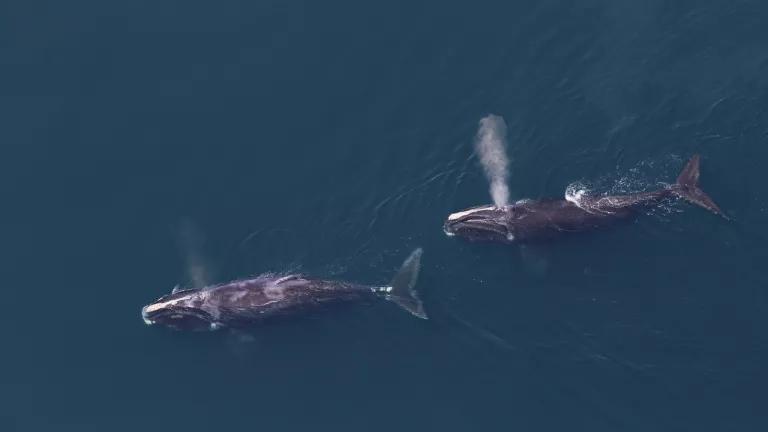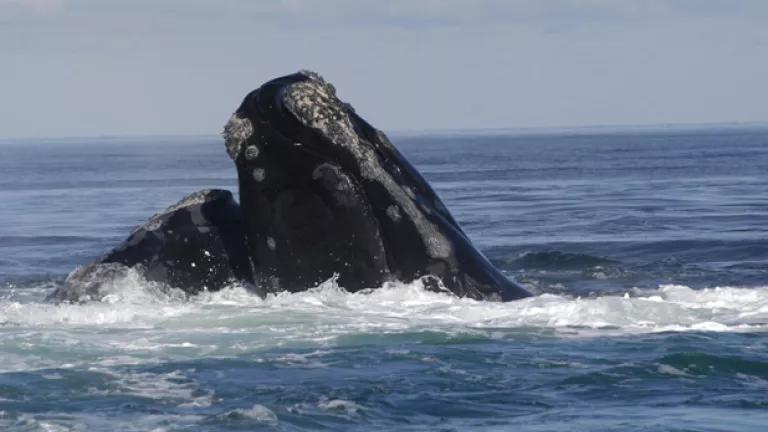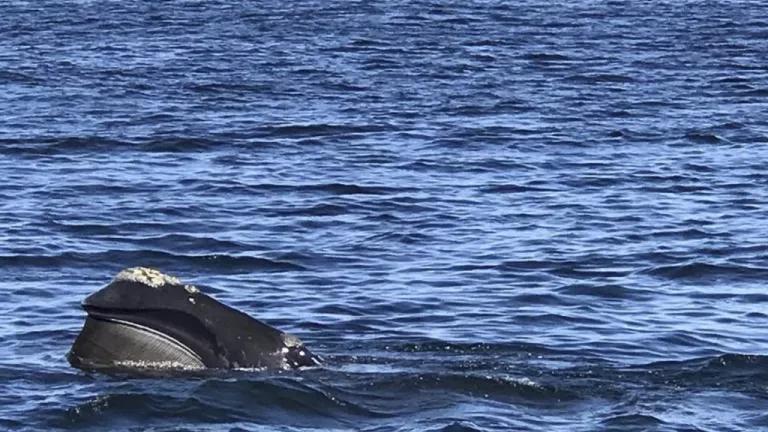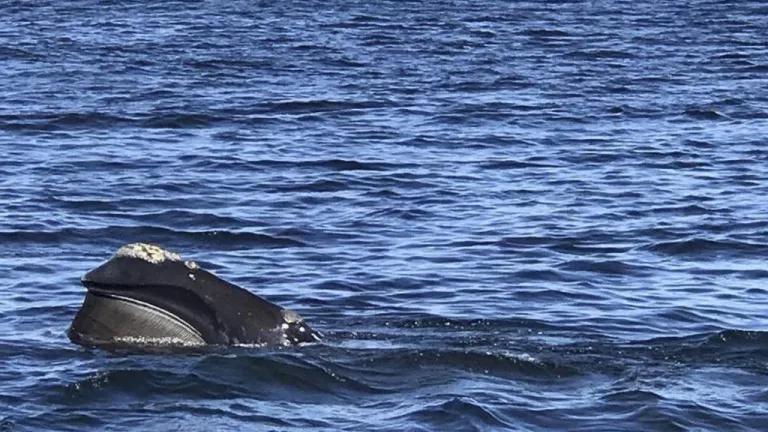
A North Atlantic right whale swims along the surface off Long Sands Beach in Maine, with Nubble Light in the distance
Katy and Brandon Cressey
NRDC has formally objected to a determination that the Gulf of Maine lobster fishery should be recertified to the Marine Stewardship Council (MSC) sustainability standard on the grounds that the fishery threatens the critically endangered North Atlantic right whale.
The determination, made by the assessment body MRAG Americas Inc., that the fishery—comprising 16 client companies located in Massachusetts, New Hampshire, Maine, and Atlantic Canada—be recertified as sustainable comes at a time when right whales are rapidly declining, when fishery management measures to reduce the risk of entanglement of right whales in fishing gear are inadequate and severely limited in their effectiveness, and when the fishery has been illegally authorized under the Endangered Species Act and Marine Mammal Protection Act by the U.S. government.
Certifying the fishery at this time is unsound and out of alignment with MSC’s core principle of sustainability. Moreover, the assessment body’s evaluation was not based on accurate legal interpretation or the best available science and lacked in all precaution.
NRDC, alongside Animal Welfare Institute and Defenders of Wildlife, articulated these concerns in a formal written objection submitted to the MSC today. The objection filing will trigger the start of a multi-step resolution process during which the arguments will be evaluated by an independent adjudicator. The independent adjudicator will either confirm the original determination allowing the certification to proceed or uphold the objection.

A dead right whale, recovered off Boothbay/Portland, Maine in September 2016, showing evidence of entanglement around the head and through the mouth
NOAA, collected under NOAA permit 18786
The MSC “blue fish tick” ecolabel is arguably the best recognized sustainable seafood certification program. Yet MSC has been coming under increasing scrutiny by marine scientists and conservationists who believe weaknesses in the MSC standard have allowed for the certification of fisheries with significant marine mammal and wildlife bycatch problems. Despite these criticisms, the MSC’s new fisheries standard—approved just last week—still does not require fisheries to achieve a progressive reduction in bycatch of endangered species.
Entanglement in the vertical buoy lines associated with pot and trap fishing gear, such as those used by the Gulf of Maine lobster fishery, is the leading cause of death, serious injuries, sublethal impacts, and overall decline of North Atlantic right whales. Current management measures required of the fishery fail to adequately address the entanglement risk the fishery poses to the species. If the Gulf of Maine lobster fishery was certified as sustainable at this time, consumers of MSC-certified lobster could be unknowingly hastening the demise of one of the nation’s most emblematic and endangered species. There could not be a more blatant way to further erode consumer confidence in MSC as a certifying body.
Concern about the impact that lobster fisheries in the Northeast U.S. and Canada are having on right whales is resonating internationally and nationally. WWF-Hong Kong advised against eating lobsters harvested in the Northeast U.S. (collectively termed “Boston” lobster) due to impacts on right whales. The Monterey Bay Aquarium Seafood Watch program recently recommended that consumers avoid American lobster caught in the U.S. and Canada, as well as snow crab caught off Canada’s Atlantic Coast due to impacts on the species. Conservation groups based in Georgia launched a lobster boycott effort after a 12-year old right whale named Cottontail was found dead off South Carolina after becoming severely entangled around the mouth and upper jaw.
Indeed, MSC temporarily suspended its certification of the Gulf of Maine lobster fishery in 2020 a federal judge ruled that the U.S. government had violated the Endangered Species Act in authorizing the fishery. The certification was reinstated in October 2021 after the development of new management measures, even though the inadequacy of those measures meant that the fishery still posed a direct threat to the species.
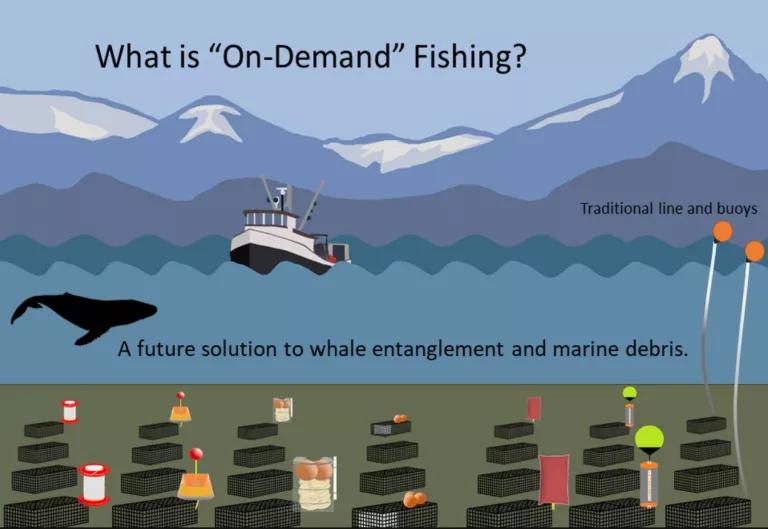
Ropeless fishing gear, also known as pop-up or on-demand fishing gear, reduces the risk of entanglement
Annika Toth and Kim Sawicki/Sustainable Seas Technology
Entanglement is a conservation issue we can solve. The Gulf of Maine lobster fishery, and other fisheries posing entanglement risk to large whales and other marine species, should only be certified as a sustainable seafood choice when testing and subsequent commercial deployment of ropeless fishing systems has been significantly advanced. This innovative technology has the potential to eliminate vertical lines from the water and therefore risk of entanglement, allowing fisheries and marine species vulnerable to entanglement to coexist. MSC must do its part to encourage fisheries to lean into the available solutions by withholding sustainability certifications from fisheries whose practices continue to harm endangered species.


